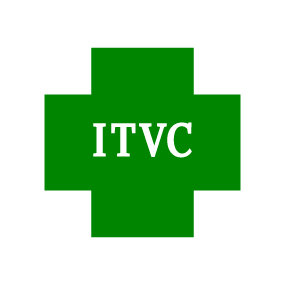Advice for Travel to Saudi Arabia during the Hajj
Required Vaccinations (by the government of Saudi Arabia)
Quadrivalent (A/C/Y/W-135) Meningococcal Vaccine
In addition to the Saudi government requirement, CDC also recommends meningococcal vaccine because of outbreaks of meningitis associated with the Hajj in 1987 and 2000
All infants, children, and adult pilgrims are required to provide proof of vaccination with a quadrivalent
(A/C/Y/W-135) meningococcal vaccine, issued not more than 3 years and not less than 10 days before arrival in Saudi Arabia.
Documentation of polio vaccination must be presented for infants and children up to fifteen (15) years of age.
Only pilgrims with valid vaccination certificates will be allowed to enter the cities of Mecca and Medina to perform Hajj.
Transmission of Meningitis
The bacteria that cause meningitis are spread through close, direct contact with an infected person that leads to exchange of saliva or respiratory and throat secretions.
Meningitis bacteria are not spread by casual contact or by simply breathing the air where a person with meningococcal disease has been.
Symptoms of Meningitis
- High fever, headache, and stiff neck (symptoms can develop over several hours, or they may take 1 to 2 days to appear).
- Other symptoms may include nausea, vomiting, sensitivity to light, confusion, and sleepiness.
- Patients with meningitis blood infections can have fever and a rash.
- In newborns and small infants, the classic symptoms of fever, headache, and neck stiffness may be absent or difficult to detect, and the infant may only appear slow or inactive, or be irritable, have vomiting, or be feeding poorly.
- As the disease progresses, patients of any age may have seizures.
- People with these symptoms should get medical attention right away.
Risk factors for getting meningitis include?
- Immune system problems, such as lack of a spleen
- Respiratory infections, such as the flu
- Smoking or being around people while they smoke
- Indoor crowding
- Close contact with an infected person (in the same house or day-care center)
- Direct contact with the oral secretions, such as saliva, of a person who is sick with meningitis
- People who have close contact with a patient with meningitis or their oral secretions are at increased risk of getting the disease and should consult a health-care provider regarding antibiotics to prevent illness.
Recommended Vaccinations
Routine Vaccines
Travelers should also be up to date on routine immunizations prior to departure (e.g., polio, measles, mumps, rubella, tetanus, diphtheria, and pertussis). These vaccines are necessary for protection from diseases that are still common in many parts of the world,
Influenza Vaccine
In general, anyone who wants to reduce their chances of getting the flu can get vaccinated. However, certain people should get vaccinated each year. They are either people who are at high risk of having serious flu complications (e.g., 50 years of age or older, pregnancy, chronic illness) or people who live with or care for those at high risk for serious complications.
Quadrivalent (A/C/Y/W-135) Meningococcal Vaccine
In addition to the Saudi government requirement, CDC also recommends meningococcal vaccine because of outbreaks of meningitis associated with the Hajj in 1987 and 2000.
Injury Prevention
Because of the large crowds that are expected during the pilgrimage and the extreme heat and extensive walking, there is a potential risk for injury and heat exhaustion, especially for the elderly or people with health problems.
To the Traveler
- To reduce the chances of injury and exhaustion?
- Drink plenty of water to prevent dehydration.
- Take your medications with you in their original containers, as well as a letter from your doctor about the medications.
- Wear sunscreen of at least 15 SPF, and wear sunglasses with UV protection to prevent sunburn and sun damage to your eyes.
- Avoid fast-moving crowds or walking too close to other people.
- Wear sturdy shoes to protect your feet.
Other Safety Tips
- Make a photocopy of your passport to carry with you at all times
- Develop plans for where to meet if you become separated from the group with whom you are traveling.


